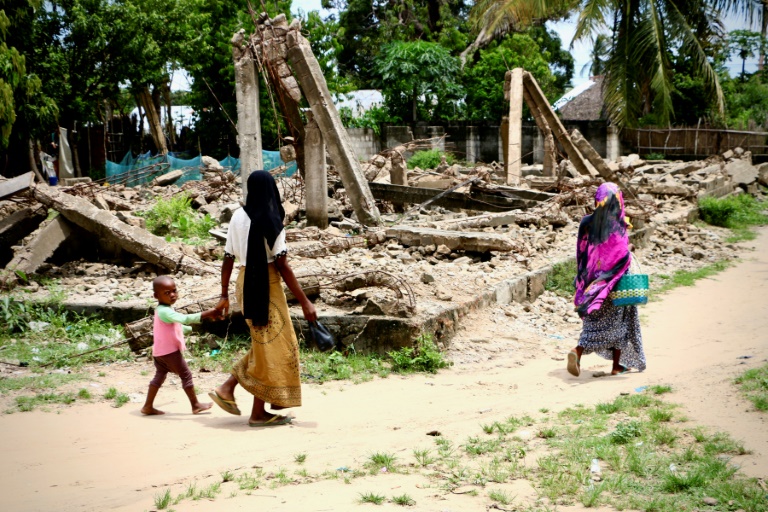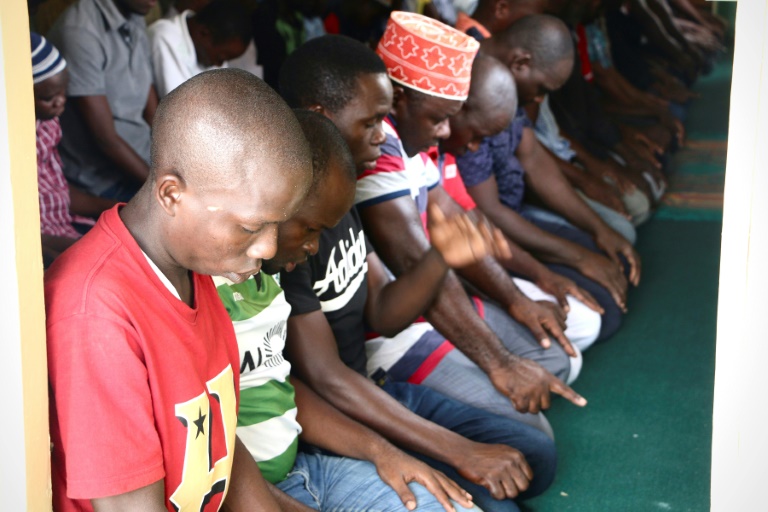Seven hacked to death by suspected jihadists in Mozambique
Suspected jihadists hacked seven people to death with machetes and torched dozens of homes on Tuesday in northern Mozambique, a region that has suffered a spate of similar attacks, police said.
The area, Cabo Delgado province, which is expected to become the centre of a nascent natural gas industry after several promising discoveries, has seen a number of deadly assaults on both security forces and civilians since October.
“The bandits used machetes to kill the seven persons. We think this group is likely part of the (one) that beheaded 10 (people on) May 27,” police spokesman Inacio Dina told AFP, referring to an attack last month in the same region that was also blamed on jihadists.
The assailants in a dawn raid on Tuesday burnt down 164 houses and destroyed four cars during the assault on the village of Naude in the Macomia district, the spokesman said.
Police reinforcements had previously been sent to the region to step up security.
Dina suggested that the group might also have been linked to the nine “insurgents” killed by security forces over the weekend who were subsequently found to be carrying assault rifles and Arabic-language documents.
“This group is very fragmented in small groups [and] they try to resist police attacks,” he said.
The May 27 bloodshed occurred in two small villages close to the border with Tanzania and not far from Palma, a small town gearing up to be the country’s new natural gas hub in Cabo Delgado.
Alex Vines, an analyst on Mozambique for the London-based Chatham House think-tank, said anticipation of a gas boom had increased the sense of inequality in Cabo Delgado.
“A series of recent studies have concluded that this has been one of the drivers for growing youth militancy – particularly among young men,” Vines told AFP.
Two of those killed in the gruesome dawn raid were boys aged 15 and 16.

Mozambique’s government ordered the mosque in Mocimboa da Praia be razed after an attack blamed on radicalised youth who allegedly worshipped there.
‘Al-Shabaab-style ideology’
In October, armed men targeted a police station and military post in the town of Mocimboa da Praia in what was believed to be the first jihadist attack on the country.
Two officers died and 14 attackers were killed.
The group, described by locals and officials as “Al-Shabaab”, has no known link to the Somali jihadist group of the same name.
In the following weeks, at least 300 Muslims, including Tanzanians, were arrested and several mosques were forced to close.
The increase in attacks in the north of the country could pose a problem for Mozambique, which holds general elections next year and hopes to cash in on the recently discovered gas reserves.
The vast gas deposits discovered off the shores of Palma could transform the impoverished country’s economy.
Experts predict that Mozambique could even become the world’s third-largest exporter of liquefied natural gas.
But the country’s north has largely been excluded from the economic growth of the last 20 years, and the region sees itself as a neglected outpost, creating fertile ground for radical Al-Shabaab-style ideology.
Vines, the analyst, said that it was vital that the government did not itself fan the flames of the violence seen in recent months with a heavy-handed response.
“It’s urgent that the government… does not overreact to the new armed crisis in Cabo Delgado,” he said, adding that organised criminal networks had also played a role in the sudden mushrooming of jihadist cells in the country.
Mozambique last month passed an anti-terrorism law that punishes terror activity with prison sentences of more than 40 years.

Worshippers attend prayers at a mosque in Mocimboa da Praia, a port town in Mozambique’s mainly-Muslim north.
For more news your way
Download our app and read this and other great stories on the move. Available for Android and iOS.









